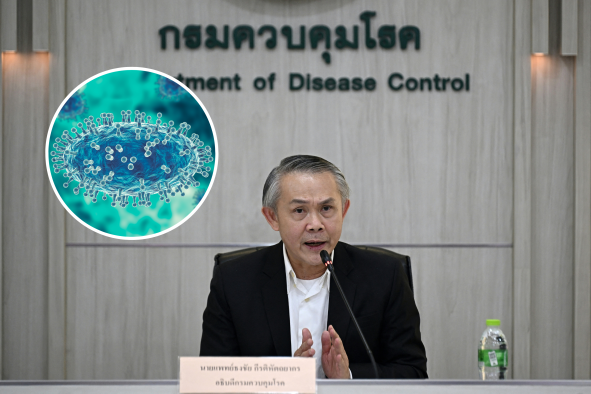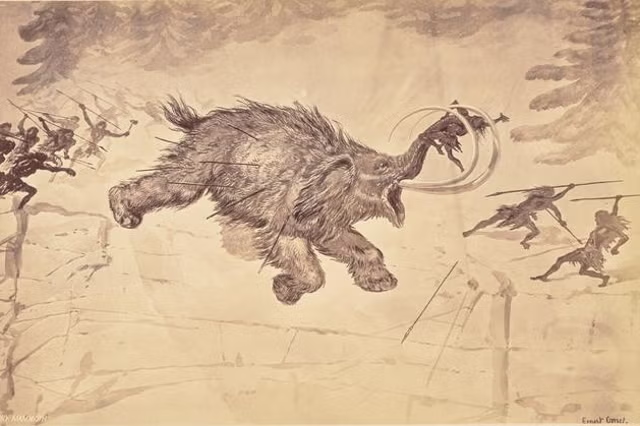A team of international researchers has raised alarm over the potential for a pandemic stemming from antimicrobial resistance in animals used for food, particularly in Southeast Asia.
The study, published in the International Journal of Food Science and Technology, warns that the animals we consume could become a gateway for deadly superbugs, posing a significant threat to global public health and food security.
"There is a big pandemic waiting to happen in the form of antimicrobial resistance," Rajaraman Eri, the associate dean of biosciences and food technology at the Royal Melbourne Institute of Technology in Australia, said in a statement.
More From Newsweek Vault: 5 Steps to Build an Emergency Fund Today
"We're going to face a situation in the world where we will run out of antibiotics. That means we will not be able to treat infections," he continued.
Drug-resistant diseases could cause up to 10 million deaths annually by 2050, according to the World Health Organization.
The study identified Asia, particularly Southeast Asia, as a hot spot for antimicrobial resistance in animals.
More From Newsweek Vault: What Is a Health Savings Account?
The region hosts a vast population of livestock, including billions of chickens and millions of ducks, cattle, buffalo, pigs, sheep and goats.
While these animals provide essential economic and nutritional benefits to local communities, they also present a significant risk in terms of antimicrobial resistance.
More From Newsweek Vault: Compare the Top Health Savings Account (HSA) Providers
Co-author Charmaine Lloyd said the overuse and misuse of antimicrobial drugs, especially for growth promotion in healthy animals, had accelerated the rate of resistance. "On the farm, the presence of antibiotics in food, soil, water runoff and animal waste can contribute to this resistance developing," she said in a statement.
"Since resistant bacteria in animals may be transferred to humans through the food chain or by direct contact, this transmission pathway highlights the connection between human and animal health, emphasizing the need to address antimicrobial resistance in food animals," Lloyd continued.
A key finding of the study is the need to create a distinction between antimicrobial resistance and residue in food animals.
While resistance occurs when microorganisms develop immunity to antimicrobial agents, residues are remnants of drugs and other substances that persist in animal tissues or products.
Both issues pose risks to human health, with growing concern over the consumption of products containing antimicrobial residues.
"Veterinary drug residues commonly arise from overusing and improper use of antimicrobial agents, growth promoters and other veterinary drugs in animal husbandry practices," Eri said.
The researcher highlighted the disparity in global regulations, noting that while countries such as Australia have robust policies to manage antimicrobial resistance, many nations lack such controls.
"In many countries, anybody can buy antibiotics, whether it be for human or animal use," he said.
To address these challenges, the research team has proposed six recommendations for policymakers in the Association of Southeast Asian Nations. The ASEAN member states are Brunei, Cambodia, Indonesia, Laos, Malaysia, Myanmar, the Philippines, Singapore, Thailand and Vietnam.
The recommendations involve recognizing the difference between residue and resistance, fostering regional collaboration, implementing country-specific awareness campaigns and regulations, promoting international cooperation, strengthening public health systems, and investing in research for alternative antimicrobial solutions and sustainable farming practices.
Do you have a tip on a science story that Newsweek should be covering? Do you have a question about antibiotic resistance? Let us know via science@newsweek.com.
References
Sundram, P., Lloyd, C., & Eri, R. (2024). Addressing residue and resistance in food animals: A policy imperative in Southeast Asia. International Journal of Food Science and Technology, Advance online publication. https://doi.org/10.1111/ijfs.17063
Disclaimer: The copyright of this article belongs to the original author. Reposting this article is solely for the purpose of information dissemination and does not constitute any investment advice. If there is any infringement, please contact us immediately. We will make corrections or deletions as necessary. Thank you.



